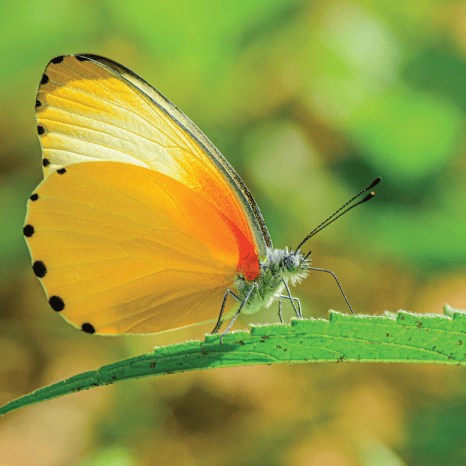Conservation at Antelope Park
1. The African Lion
Home of the African Lion & Environmental Research Trust (ALERT)
“Wherever you go becomes a part of you somehow.” – Anita Desai
Since 2005, Antelope Park has been paving a way in the fight for lion conservation in Africa. In partnership with ALERT, we pioneered a bold and deeply personal mission: to reverse the rapid decline of African lion populations through a staged rehabilitation and release programme. The first of its kind.
What began with a handful of lion cubs experiencing daily walks out in the wild has grown into one of the most ambitious lion conservation efforts on the continent. With wild lion numbers having plummeted from over 300,000 to fewer than 16,000, our programme offers a viable path to restoring lion populations across Africa.
Our Approach
Captive-bred lions, if raised and trained in the right environment, can learn to hunt, form natural prides, and eventually thrive in the wild. Through years of research and dedicated care, our staged release model enables captive-born lions to regain their wild instincts, ultimately leading to the birth of second-generation lions that have had no human contact and are capable of living independently in protected reserves.
Our Impact
Together with Lion Encounter (Victoria Falls), Wildlife Encounter, African Impact, and our conservation partners, we’ve invested over $3 million into lion conservation and community development:
- $1.6 million to care for our resident lions and support the breeding programmes in Zimbabwe and Zambia.
- $247,000 to uplift local communities through education, health, and farming initiatives in Gweru, Victoria Falls and Livingstone.
- $760,000 on release site infrastructure, including fencing, boreholes, and anti-poaching in Chizarira National park.
Our lions have been successfully released into large, solar-fenced reserves in Zimbabwe and Zambia, monitored by conservation scientists, and supported by global institutions including Coventry University and the Chicago Zoological Society.
More Than Lions
True conservation doesn’t happen in isolation. It must benefit both people and wildlife. That’s why Antelope Park supports 17 community initiatives, from schools to healthcare projects, because we know that if surrounding communities don’t benefit from conservation, protected areas won’t survive.
The Road Ahead
Despite setbacks, including the closure of our commercial lion walks due to shifting public opinion, we remain committed to the mission. Our programme has proven that captive lions can rewild, hunt, and raise cubs in natural environments. We continue to adapt, using solar-powered fences, GPS tracking, and DNA-managed breeding to improve outcomes.
As Nelson Mandela said:
“If we do not do something to prevent it, Africa’s animals, and the places in which they live, will be lost to our world, and her children, forever.”
At Antelope Park, we’re doing something. We invite you to join us, as a guest, volunteer, partner, or supporter, and help protect Africa’s lions for generations to come.
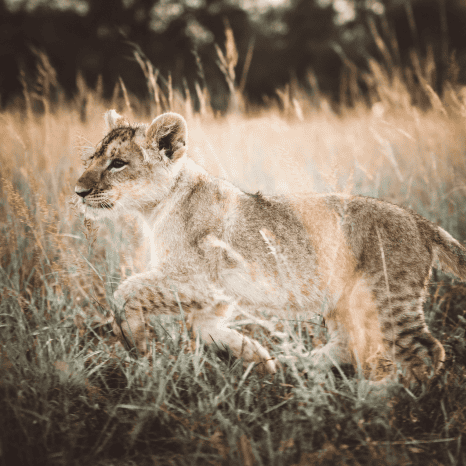


2. Lions at Chizarira National Park
A Collaborative Effort to Protect Lions,Biodiversity & Local Communities
In 2017, the African Lion and Environmental Research Trust (ALERT) partnered with Zimbabwe Parks and Wildlife Management Authority (ZPWMA) to support the revitalisation of Chizarira National Park, one of Zimbabwe’s most remote and beautiful wilderness areas. This partnership, supported by Coventry University and other global collaborators, aims to restore the park’s natural and human ecosystems through conservation science, infrastructure development, and community empowerment.
Why Chizarira?
Despite its ecological importance, Chizarira has seen little research or investment in over 20 years. Its wild lion population remains well below the park’s carrying capacity. With rich biodiversity and vast potential, Chizarira presents a unique opportunity to restore an isolated ecosystem and create a model of sustainable conservation.
How have we helped?
Park Rehabilitation
We worked closely with park authorities to:
- Restore water systems, roads, bridges, and buildings
- Upgrade communications and tourist infrastructure
- Provide transport, training, and support for park rangers and anti-poaching teams
- Renovate abandoned buildings to create a research base for visiting scientists
Research & Biodiversity Monitoring
ALERT conducted the first scientific research in Chizarira in over two decades, focusing on:
- The park’s wild lion population and long-term viability
- Broader ecosystem health and biodiversity capacity
- Data-driven strategies for habitat restoration and species protection
Community Development
We believe conservation can only succeed when it works for the people who live alongside wildlife. That’s why we:
- Invested in food security, education, and vocational training in surrounding communities
- Delivered conservation education to build local stewardship
- Created benefit-sharing models so that communities feel empowered and included in the park’s protection
The Vision
Our aim was to create a thriving ecosystem for lions and other species to flourish, a place where local people see conservation not as a threat, but as an opportunity.
Together, we’re laying the foundation for a conservation model that protects wildlife, uplifts communities, and ensures Africa’s wild heritage is preserved for generations to come.
3. Vulture Conservation & Research
Safeguarding Nature’s Clean-Up Crew
Vultures play a crucial role in maintaining healthy ecosystems; however, across Africa, their numbers are declining rapidly. In South Africa they are being widely trapped and killed and their body parts used in traditional medicine. The decimation of vultures upsets the ecosystem equilibrium dramatically.
At Antelope Park, Dr Peter Mundy of NUST University launched a research initiative dedicated to the protection and understanding of these vital, but often overlooked, birds.
His research project focused on vulture conservation, in partnership with leading experts at VULPRO. From our dedicated vulture “restaurant” (a supplementary feeding site) they collected vital data on: Species diversity, population numbers, age ranges, and presence of tagged individuals.
This data, gathered by our team and passionate volunteers, was sent to VULPRO to support broader research on how safe feeding sites affect vulture behaviour, survival, and nesting habits.
Our Vision and Beyond
By offering a protected space for vultures to feed and nest, we successfully attracted large numbers of vultures back to the Antelope Park area and surrounds. We have 4 different species of vulture, strengthening the local ecosystem and providing unique educational and guest experiences, connecting visitors to the ecological importance of vultures.
This project builds on our wider commitment to sustainability. For example, our constructed wetland system for recycling greywater has already brought in an incredible variety of birdlife, a testament to how small interventions can yield big ecological rewards.
Through research, education, and habitat creation, we’re working to give vultures and many other bird species a fighting chance.
“Look deep into nature, and then you will understand everything better.”
– Albert Einstein
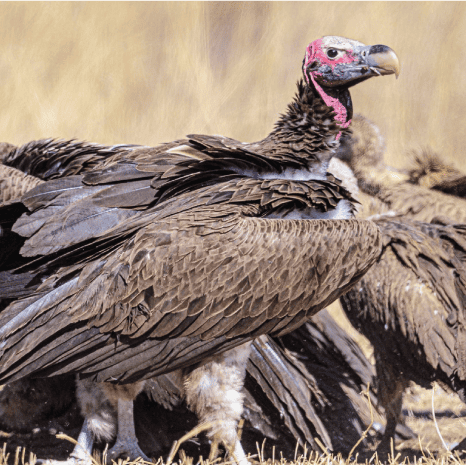

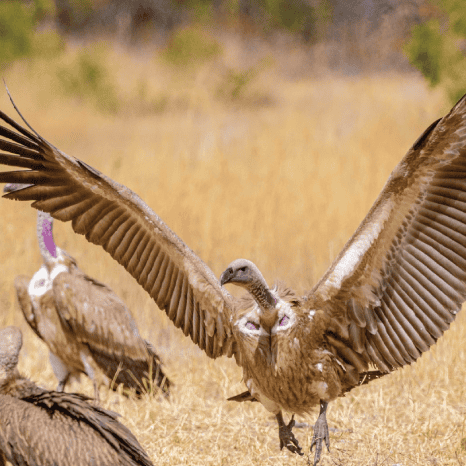
4. Our Resident Elephants
Guardians of Wisdom: Amai, Ntombi & Chibi
In 1992, a national crisis required a place of safety for VIP guests. As drought ravaged parts of Zimbabwe, waterholes dried, food sources vanished, and young elephants found themselves orphaned or abandoned, cut off from their herds with little hope of survival. Four elephant calves, Amai, Ntombi, Jecha and Chibi, were rescued and brought to the safety of Antelope Park. Weak, traumatised, and barely clinging to life, they were nursed back to health with patience, love, and around-the-clock care.
A Forever Sanctuary
Today, over 30 years later, 3 are still with us: Amai, Ntombi, and Chibi are no longer frightened calves, they’re fully grown, emotionally intelligent, and inseparable members of our Antelope Park family. They roam, graze, swim, and live with dignity and comfort under the watchful eyes of our dedicated elephant handlers.
Because they were rescued at such a young age and have lived most of their lives under human care, they cannot be reintroduced into the wild. However, this does not mean they live without purpose. Their role may be more important than ever.
Elephants as Educators
Amai, Ntombi, and Chibi now serve as powerful ambassadors for their wild cousins. Through educational interactions, guided walks, and conservation programmes, they help thousands of local and international guests connect with the intelligence, emotion, and majesty of elephants.
Visitors leave understanding the complexity of elephant behaviour, their memory, empathy, family bonds, and the very real threats elephants face in the wild: habitat loss, human conflict, and ivory poaching. They connect generations of Zimbabweans to their natural heritage. For many local school children, this is their first close encounter with an African elephant.
Every lesson learned here at Antelope Park inspires action and advocacy far beyond our borders.
- Amai (meaning “mother” in Shona) is calm, nurturing, and often takes the lead in guiding the group.
- Chibi is gentle but spirited, always curious and playful.
- Ntombi (whose name means young woman) is the boldest of the three, with a cheeky streak that keeps the team on their toes.
Why Their Story Matters
Amai, Ntombi, and Chibi are more than residents, they are storytellers, educators, and symbols of hope. Supporting Antelope Park means helping us provide for their care, enrich their lives, and amplify the message they carry.



5. White Rhinos: From the Brink to a New Beginning at Antelope Park
A century-long comeback story
At the end of the 19ᵗʰ century, the southern white rhinoceros seemed lost to history; fewer than 100 animals clung to survival in South Africa. Intense protection and bold translocation programmes reversed that decline, and by 2012 the continent saw a rise in the population to over 20,000 white rhinos, a triumph hailed as one of conservation’s greatest rescues.
Yet success proved fragile. A surge in organised poaching between 2012 and 2021 took the lives of another 5 000 beautiful rhinos. Recent conservation efforts have again stemmed the tide but the threat is real.
Our Chapter
2023 The rescue
In August 2023, we answered an urgent call from Mazowe, where a small crash (family) of rhino faced escalating poaching pressure. After meticulous planning, Antelope Park translocated Jane and Chichi (female mother and daughter) and Choto (a dominant male) to the safety of our reserve, sadly not soon enough for 4 of their family members who were slaughtered the day before! The three arrived wide-eyed but unharmed and immediately under round-the-clock ranger protection.
Since that day, Jane, Chichi, and Choto have been roaming free around the park, wallowing in the dams, grazing our nutrient-rich grasslands, and performing their age-old role as “ecosystem lawn-mowers.”
March 2025, A Miracle Called Chishamiso
At dawn on 24 March 2025, our rangers radioed something that stopped us in our tracks. Jane had given birth. Nestled in the long grass stood a perfect, curious bundle of wrinkles. We named her Chishamiso, the Shona word for miracle.
For Antelope Park, Chishamiso is far more than a calf; she is living proof that secure habitat, relentless protection, and community-led stewardship can convert rescue into genuine recovery. Her birth means our park is no longer just a sanctuary, it is a productive rhino habitat.
Why It Matters
- Genetic lifeline. Every healthy calf strengthens a gene pool diminished by decades of illegal hunting.
- Ecosystem health. Grazing patterns of a single crash open pathways for smaller grazers and stimulate fresh growth, boosting overall biodiversity.
- Continental momentum. Each protected calf nudges Africa closer to reversing rhino decline.
Join the Journey
Antelope Park funds its rhino programme entirely through visitor fees, volunteer placements, and direct donations. By staying with us, spreading the word, or supporting our anti-poaching teams, you help secure Chishamiso’s future and the future of every rhino yet to be born on these plains.
Together, we can ensure that the next chapter in the white rhino story is written not in loss, but in life.

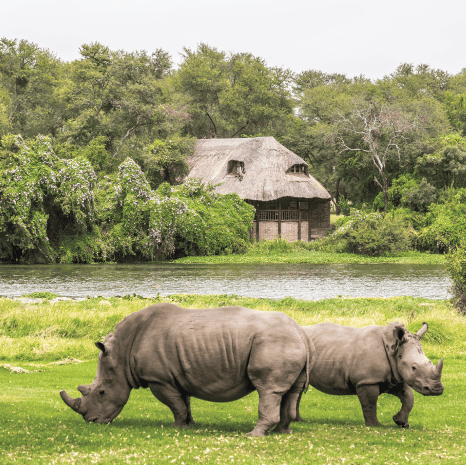
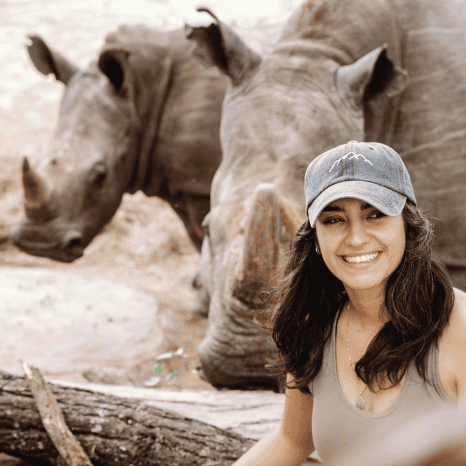
6. Biodiversity
Protecting Nature
Antelope Park is committed to protecting this beautiful haven that so many creatures great and small have taken refuge in. The presence of lions is a natural deterrent to poachers, illegal wood gatherers and overgrazing that plagues surrounding communities. Predators assist in the protection of flora and fauna, keeping a biodiverse system that benefits not only hundreds of species but is also an optimal place for humans to thrive in.
Co-Labouring
We try to live in harmony with these natural systems. By processing our greywater through bulrushes and special wetland plants, a natural habitat has been created for many wetland birds in the area.
Compost is enriched with animal manure in our organic herb and vegetable gardens. We work with nature using companion planting, mulching and herbal sprays rather than harmful fertilizers and pesticides. These gardens supply our staff and camp with fresh produce and are the secret ingredients to our wholesome meals at camp.
Great AND Small
Our resident bees in hives across the park keep adding the essential life of pollination to many species of plants. Their honey is delicious and nutritious.
From the King of the beasts down to the sweet honey bee – it seems we can’t live much of a life without them.
I go to nature to be soothed and healed, and to have my senses put in order.” – John Burroughs
